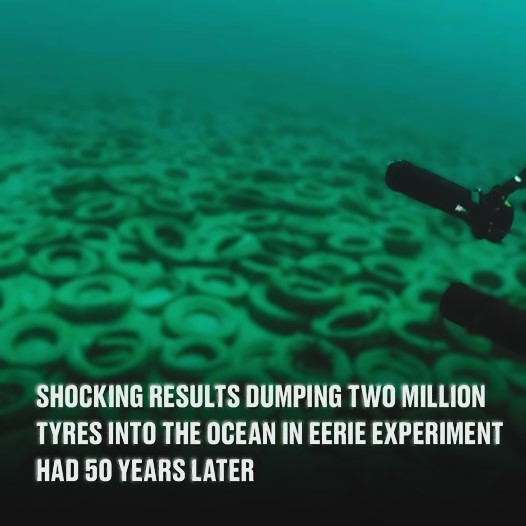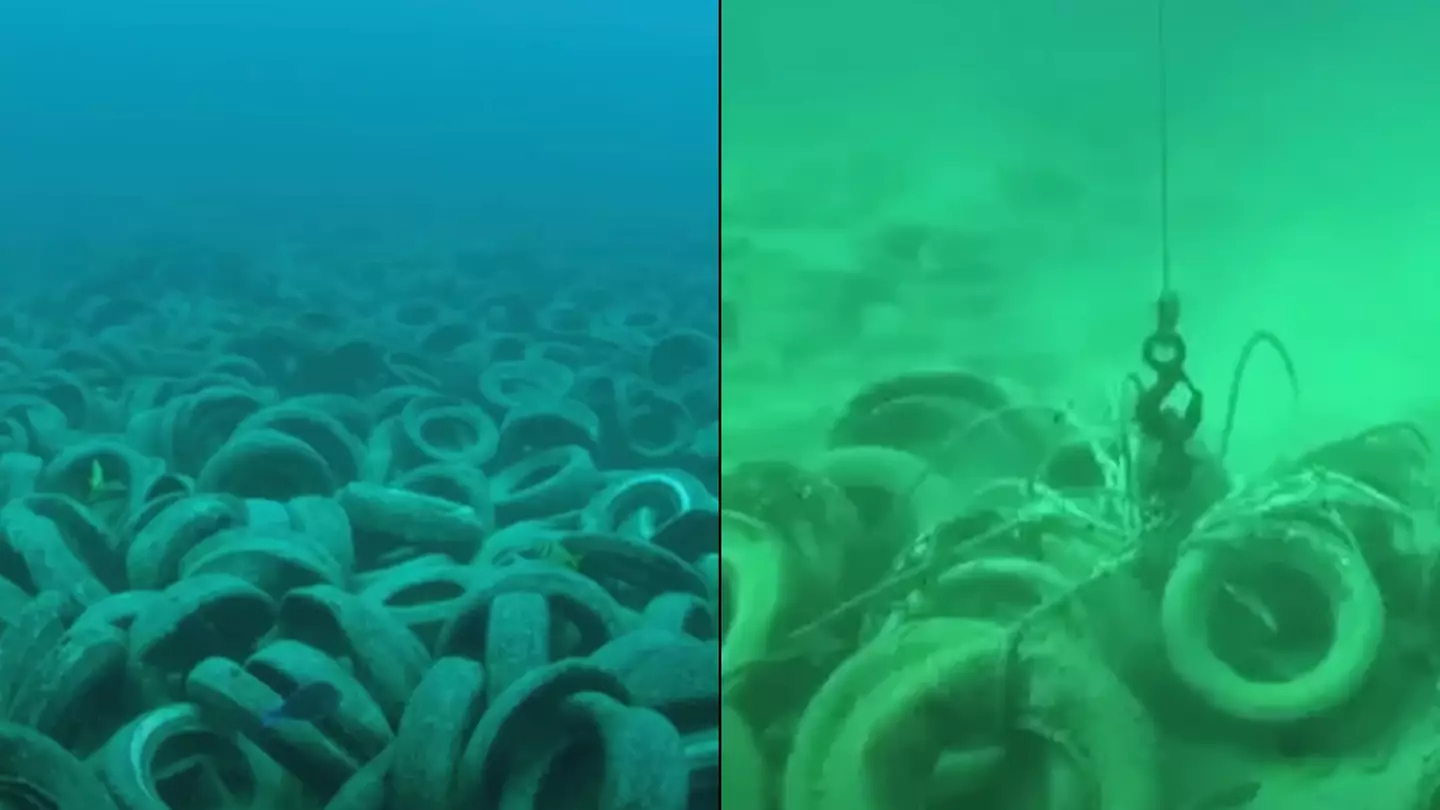An artificial reef project that began over 50 years ago has ultimately proved to be a disaster, damaging its surrounding environment more than doing any good.
Known as the Osborne Reef, it can be found just off the coast of Fort Lauderdale, Florida, USA.
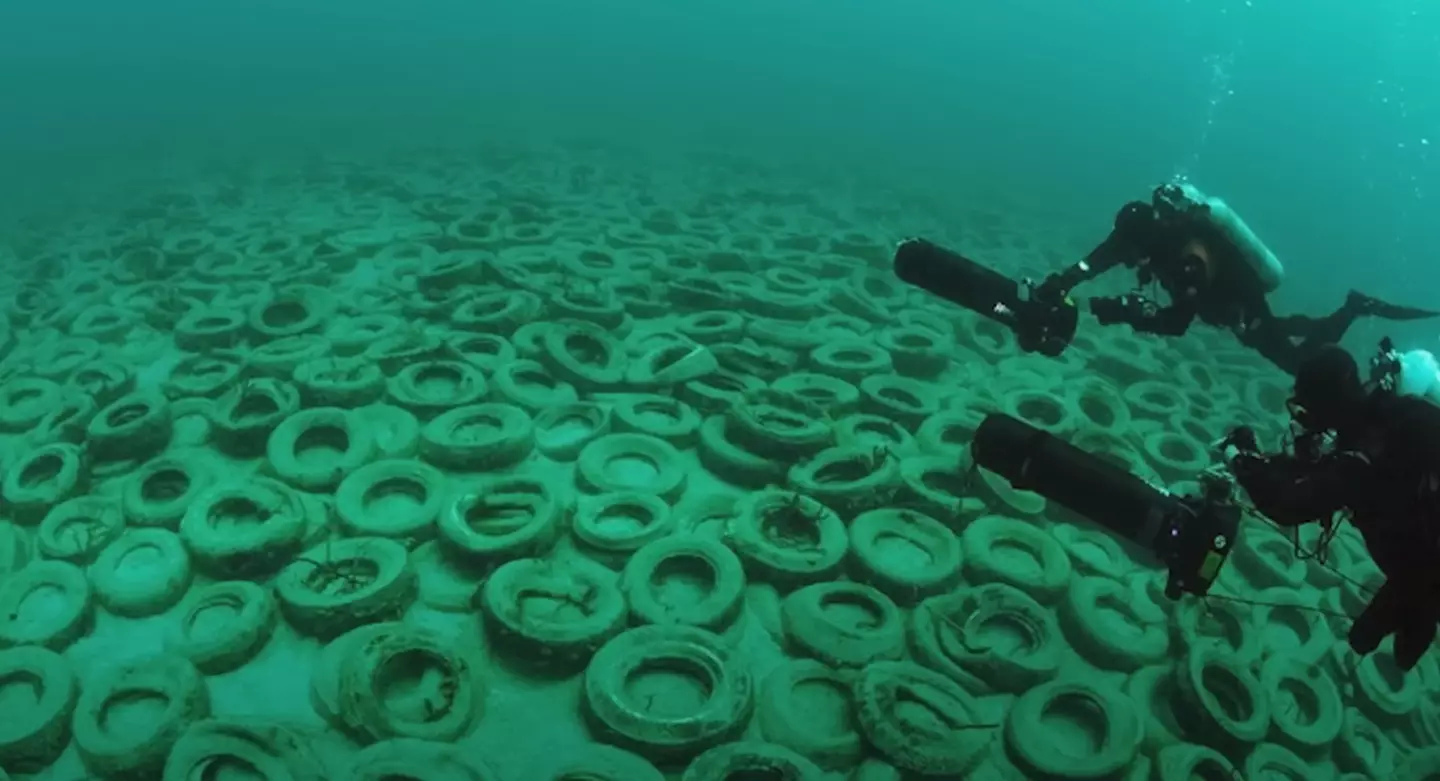
The Osborne Reef is still not in a great state
How did the idea of the Osborne Reef come about?
The Osborne Reef consists of over two million tyres, as a result of attempts throughout the 1970s and 80s to improve marine wildlife, as it was believed that old tyres could mimic coral reefs.
But as we know now, this became an environmental disaster.
Numerous groups have tried to clean the mess up, with the likes of the US military trying and failing to get rid of the rubber nuisances.
First thought up by a local nonprofit, the idea was approved by the US Army Corps of Engineers, while the actual dumping was supervised by a US Navy minesweeper.
It became so popular in fact, that tyre company Goodyear, who were responsible for a lot of the tyres provided, dropped a gold-plated tyre in from the Goodyear blimp.
But years on, the tyres broke away from each other, having only been held together with nylon rope and steel clips.
This rendered it useless as a reef, with some even damaging nearby existing coral reefs.
What is the Osborne Reef like today?
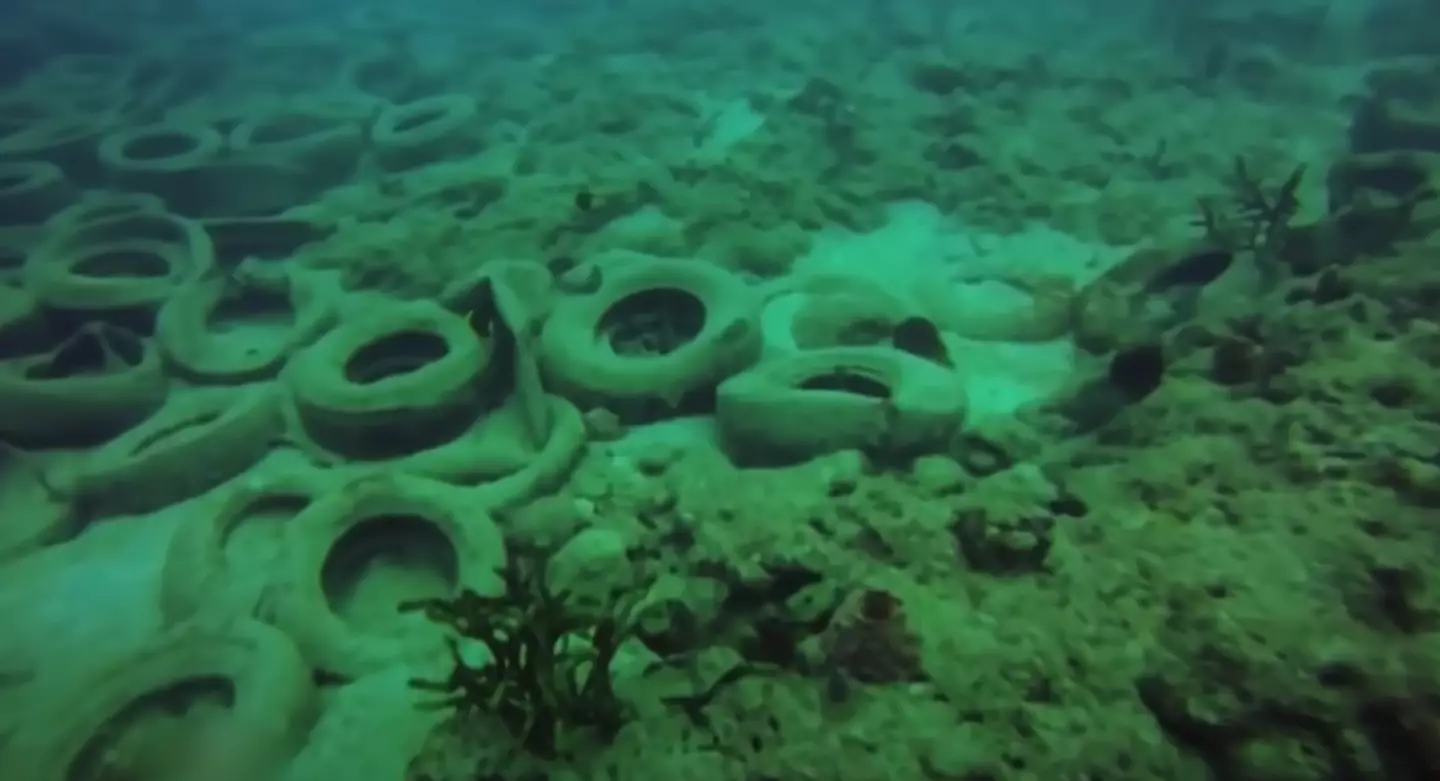
Marine wildlife has been negatively impacted by the artificial reef
Luckily, organisations have come to a realisation in the past couple of decades that it was a horrible idea, with programs being put in place to remove the remaining tyres from the sea bed.
One company in particular, 4ocean, has joined efforts to clean the surrounding ocean.
4ocean say in their Instagram bio that they are ‘on a mission to end the ocean plastic crisis’, and have cleaned millions of pounds of plastic waste from the world’s oceans.
Writing in a social media post, they acknowledged that ‘the well-intentioned project failed’, and that they have joined in on the ‘uphill battle’.
The majority of the tyres are still at the bottom of the ocean, though they claimed back in March 2022: “While there’s been much cleanup progress since the first photo was captured, there’s still over 500,000 tires left sitting at the bottom of the ocean. We definitely have a lot of work to do.”
How long will it take to clean up Osborne Reef?
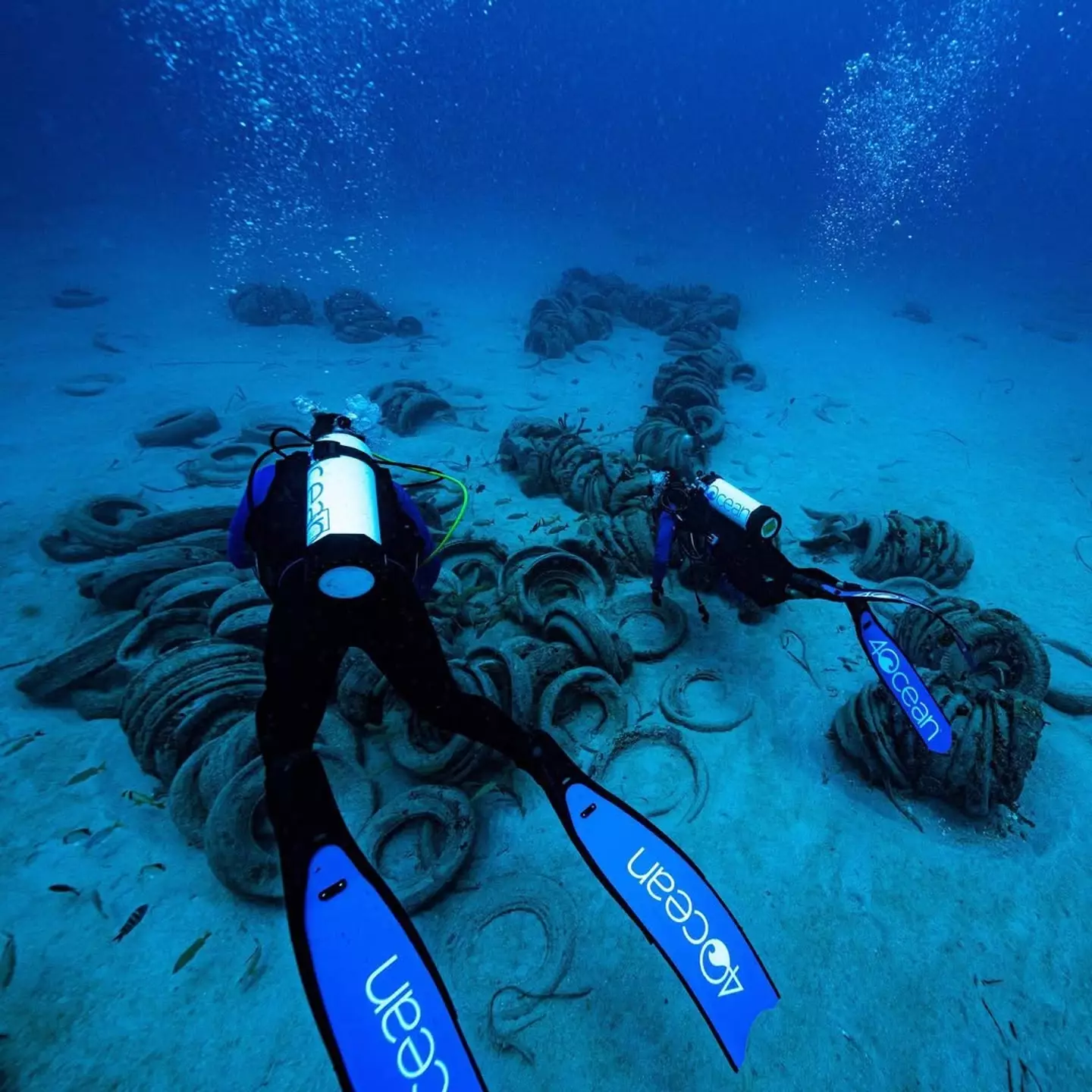
The answer is that there is no real answer.
The Florida Department of Environmental Protection has been monitoring the situation over the past few years, via its Osborne Reef Waste Tire Removal Project.
Though the last update suggested that there are still half a million tyres left, an update was due from DEP to the Florida Senate by July 2024.
It includes an estimated timeline and a detailed plan to clean the excess tyres, though it is only partially available to the public.
Figures reveal that there may be closer to one million tyres left under the ocean, as estimated charts in the report reveal that over 945,804 tyres will be removed by 2033.
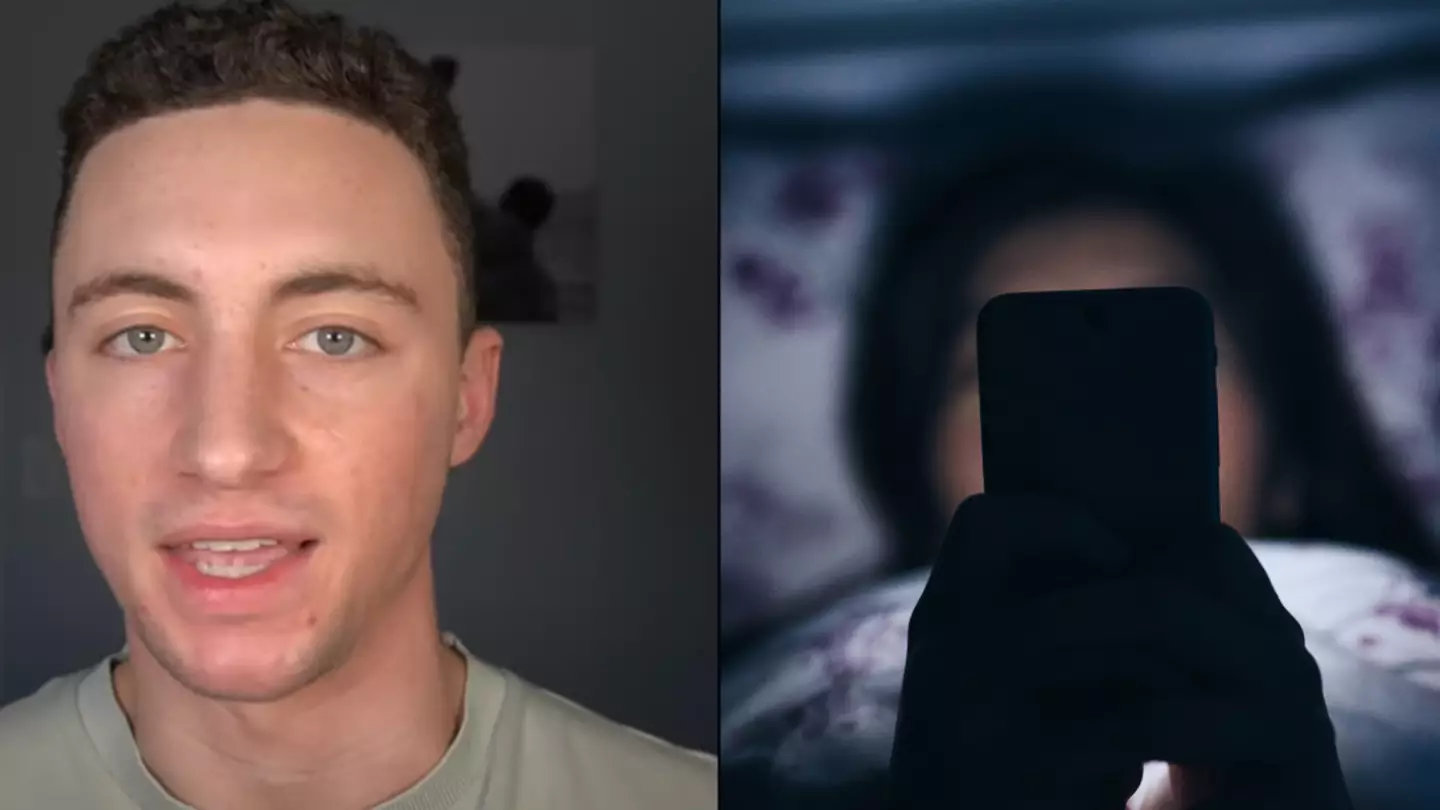
A man who deleted social media for years has revealed some of the biggest, life-altering changes he experienced when he ditched the apps.
Matt Spear said goodbye to social media back in 2020 and has never looked back since.
.jpg)
Matt explained all the benefits he had experienced after deleting the apps
“It was a total waste of time, I’d just be on there scrolling for no reason, comparing myself to others,” he said on YouTube.
“It’s a trap, it’s a game, you’re a rat on a hamster wheel. I finally realised, why am I so worried about other people’s lives when I’m literally so unhappy myself?
“I deleted the apps… the other reason I deleted them is because I liked the idea of being a mystery, I liked the idea of disappearing from the internet and reinventing myself.”
Matt explained that he’s a ‘way better version of [himself]’ these days, adding: “As soon as I deleted social media, there were no negatives. You will not find a single person tell you that when they deleted social media, their life got worse.”
The YouTuber went on to explain all the big changes he noticed when he finally quit the apps for good.
Matt explained after he gave up social media he was finally able to focus on himself and ‘killed the FOMO’ – AKA fear of missing out.
“I got rid of the fear, who cares what other people are doing? I didn’t mind being alone anymore,” he said.
“I’m more worried about what I’m doing and what I’m going to accomplish. I genuinely don’t care what other people are doing.”
Matt explained that if you don’t want to delete your accounts completely, it might be worth having a month off to experience the benefits.
More time
Matt believes social media is ‘an addiction’ and claims he’s ‘finally free’ of constantly checking his phone, which has ultimately given him loads more spare time.
“I’m free from that,” he said.
“My screen time is so low. What is so attractive about your phone now? Not much, there’s nothing on your phone.
“… I’m so much happier for it… It’s a waste of time, a distraction to keep you stuck, to keep you addicted.”

Boosts mental health
Matt says he’s noticed a huge improvement in his mental health and happiness since he quit the apps.
“It improves your mental health because you’re not always dialled into your phone, you’re just focused on you and how you can better yourself,” he said.
“That’s all you should be focused on.”
Over the last few years, research has indicated that quitting social media can hugely benefit your mental health.
A 2022 study asked 154 participants to stop using social media for a week. Those that did reported significantly reduced anxiety and depression as well as overall greater wellbeing.
Validation
Matt believes after he deleted social media, he found himself no longer seeking validation.
“I was no longer living for other people or going places with the intent of ‘oh I’ve got to find a cool Instagram picture’ so people will like me,” he explained.
Matt recalled that when he was younger, he’d been to a Celtics game where he sat courtside, but instead of enjoying the game, he spent the whole time trying to work out ‘how to get a cool picture’.
“You stop living for other people and seeking so much validation,” he added.
“It helped me, it changed me and bettered my life completely.”
